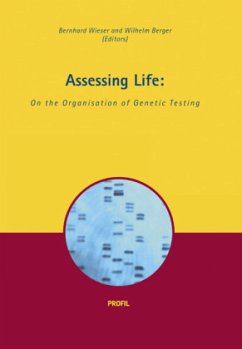Assessing Life: On the Organisation of Genetic TestingHow does genetic medicine change our lives?How does it change the ways in which health and disease are understood and experienced?These questions explicate what this book is concerned with. Medicine, as we know it today, is highly organised. What happens in a medical consultation, what is done to us, but also what we are expected to do with ourselves is structured by action regimes. Consequently, these regimes are also crucially important for the ways in which individuals come across the possibility of a genetic test. They structure if and how patients can make their choices, but also what kind of tests are offered to whom, the information provided and the support that is made available. It is therefore a central claim of our approach that the ways in which responsibility is constructed, how human beings understand it and how they are stimulated to act responsibly is to a very high degree shaped by organisational conditions ofmedical practice. Seen from this perspective, responsibility is a result of specifically organised, socio-technical contexts of action. Accordingly, the experience of health and disease is not a quasi-natural process. Nor do experiences emanate from an inner nucleus of the subject, which is there a priori. It is the task of sociological research and philosophical reflection to show how what appears to be individual is shaped and constituted by structural socio-technical conditions.
